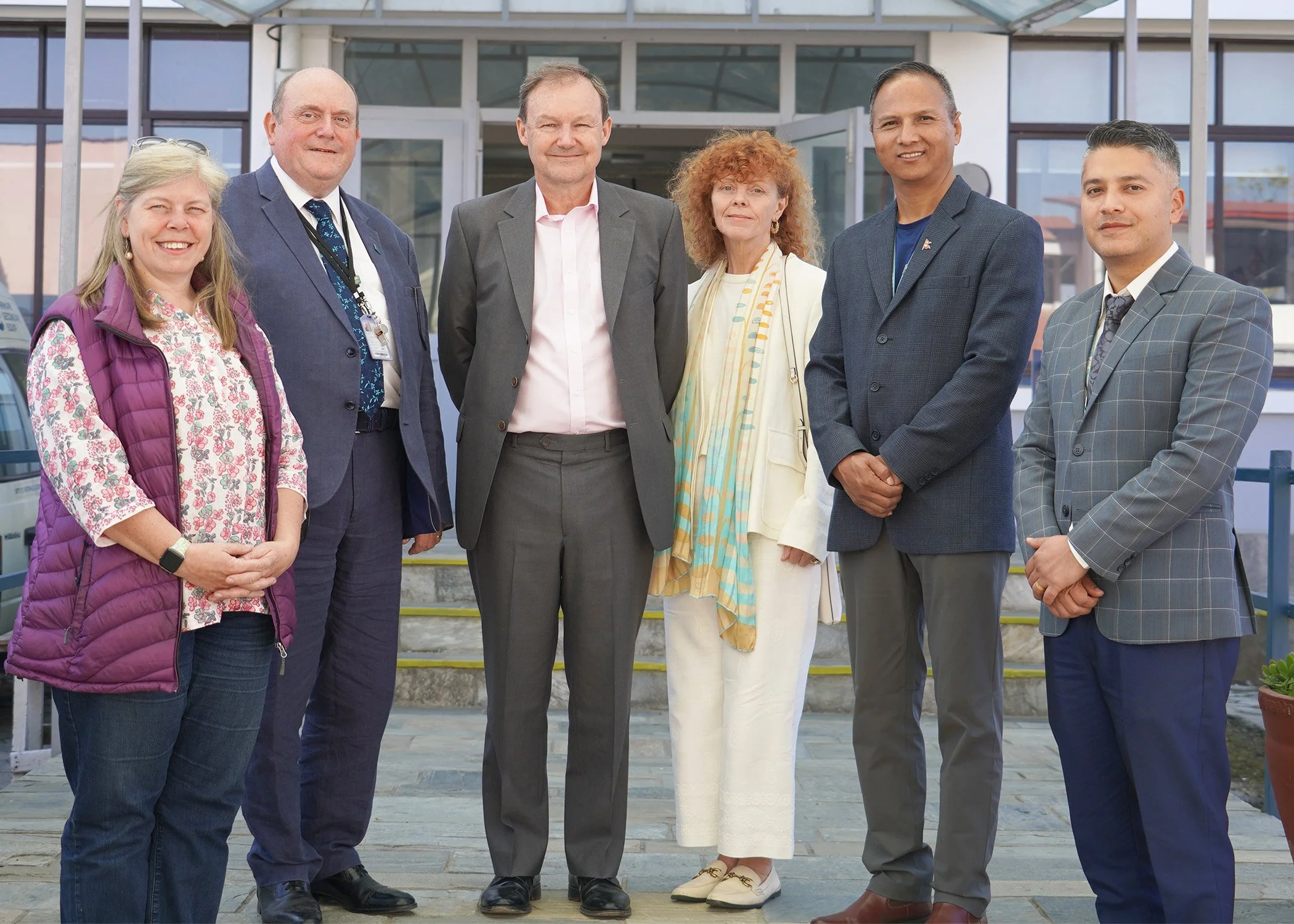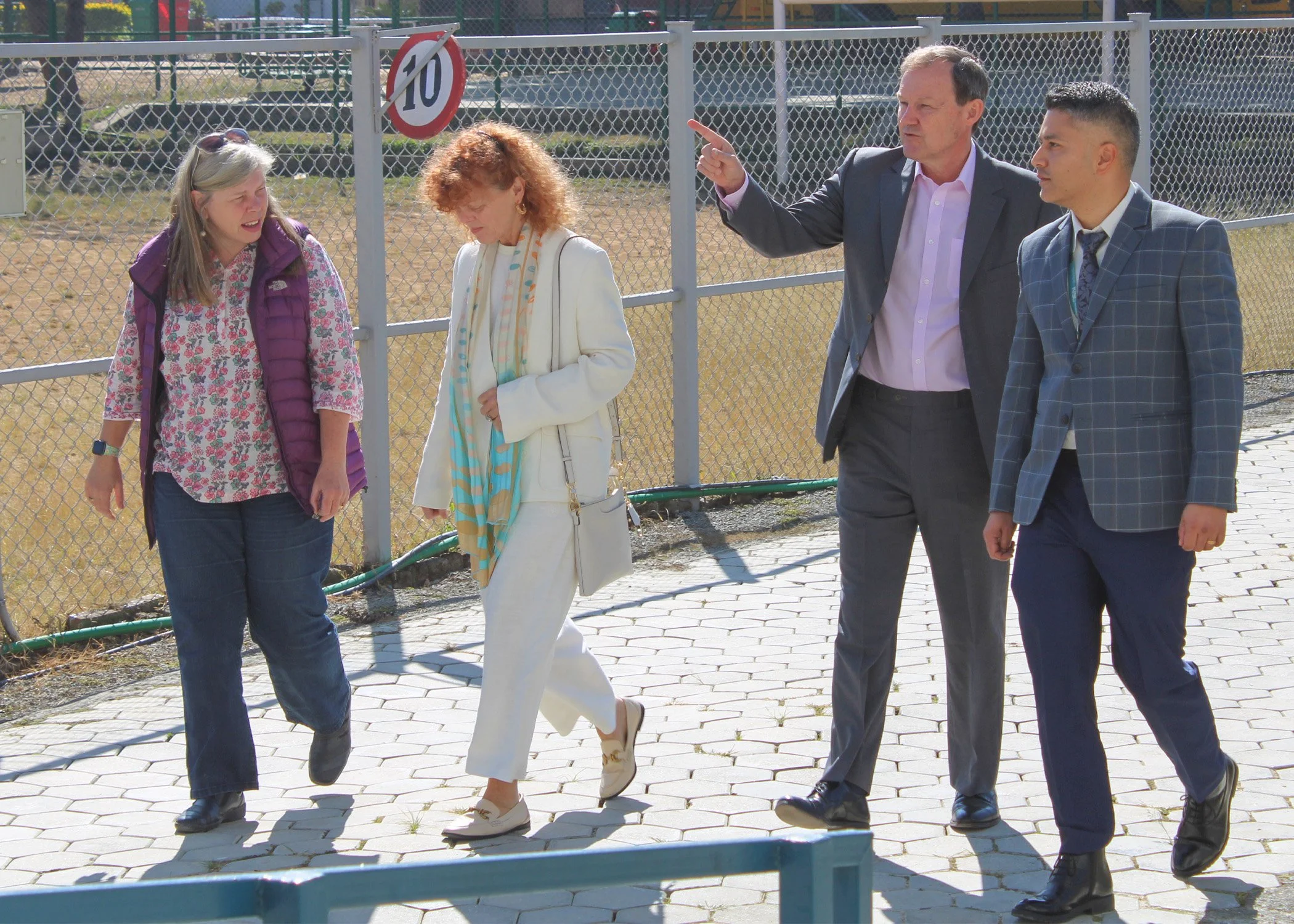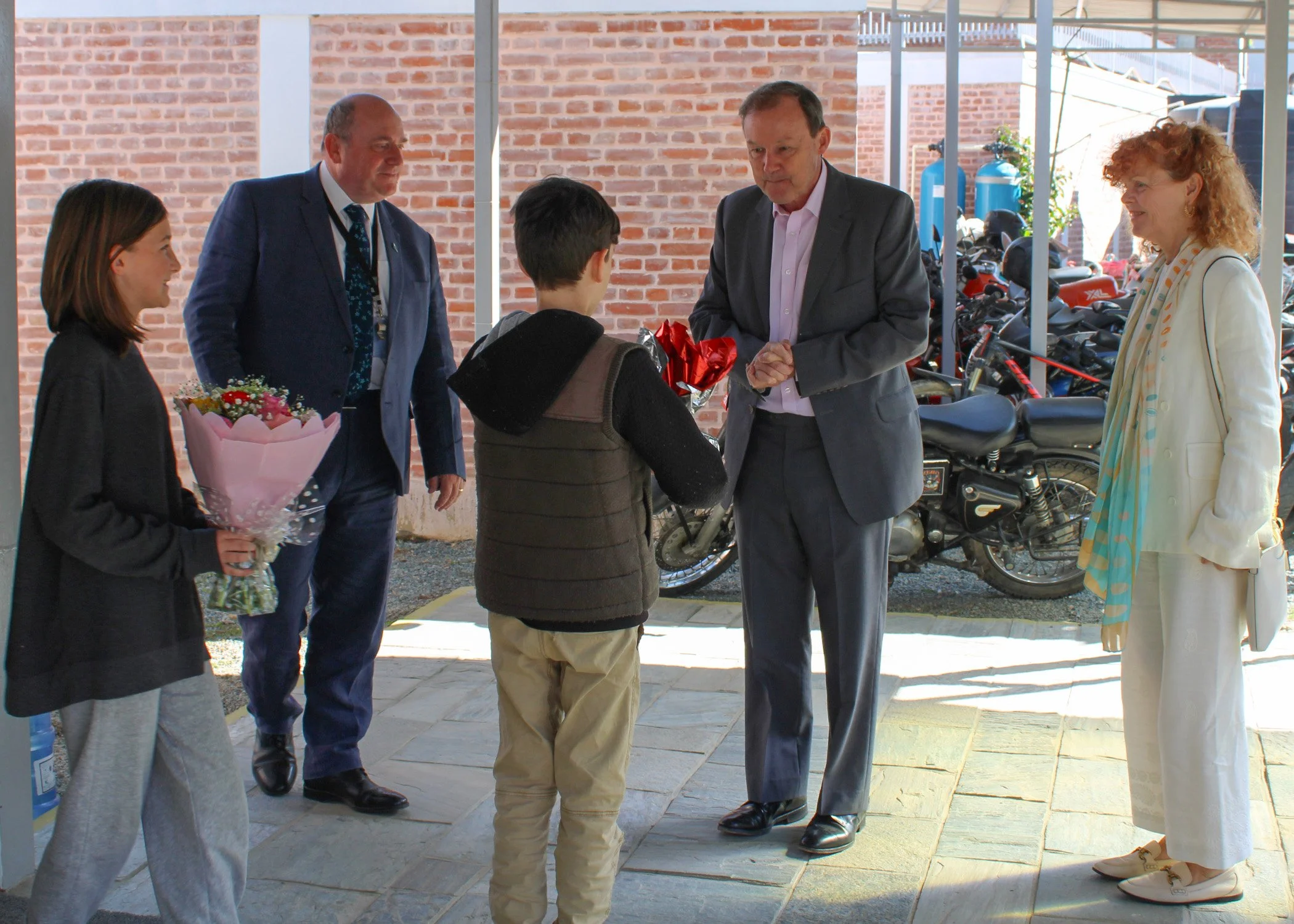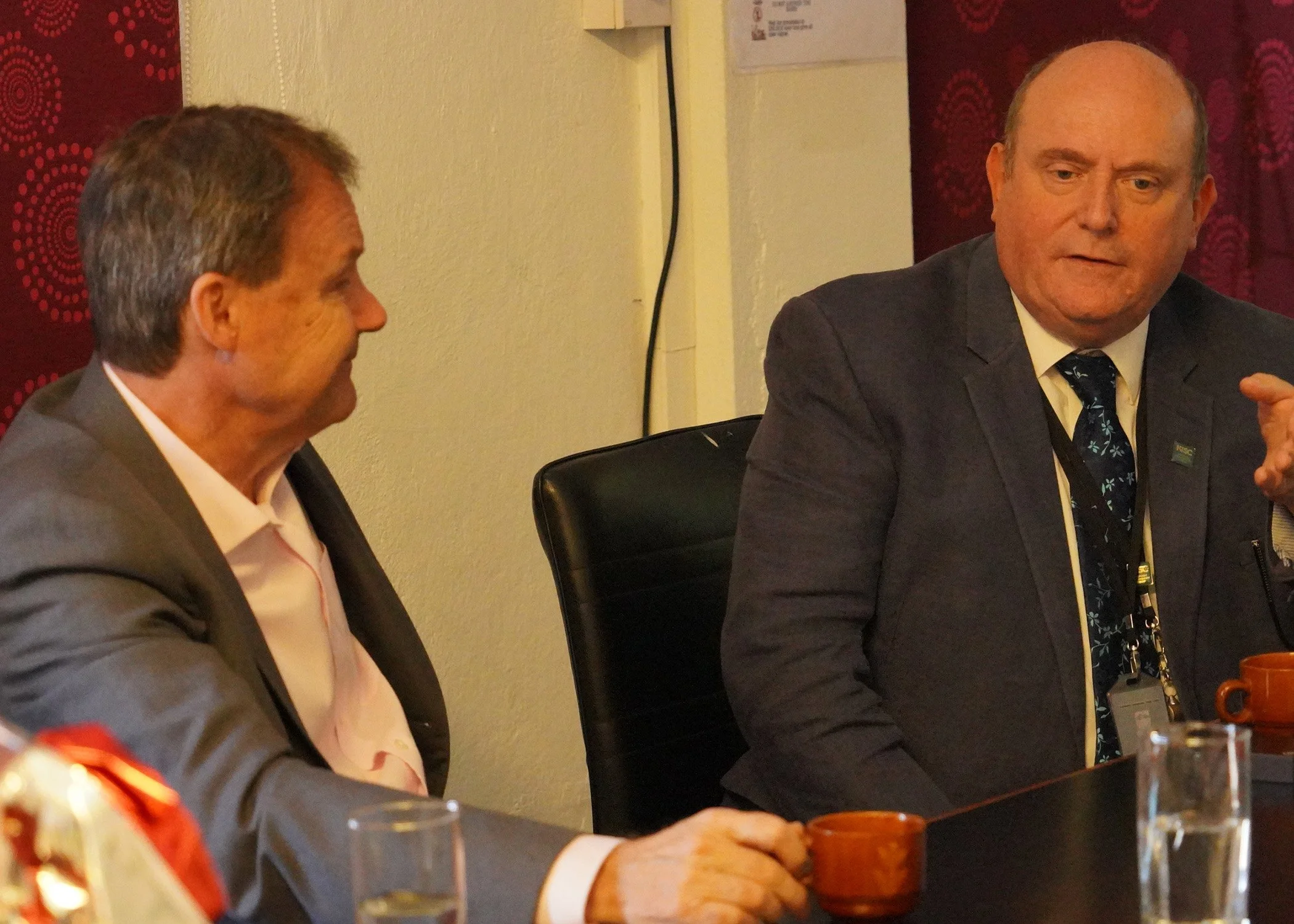KISC hosts British Ambassador
The work of KISC in developing education across Nepal is well known. Our Primary and Secondary Schools provide internationally accredited education that serve as an example of good practice, and our School of Education provides Teacher Training courses that enable teachers across Nepal, and beyond, to further develop their practice.
The Ambassador and his wife were welcomed at KISC by two of our British students, and were invited to join members of the KISC leadership team for a briefing on what the School of Education does around Nepal. He was introduced to our partner schools in the Rukum, Siraha and Lamjung areas, along with the work being done to train Nepali teachers and trainee teachers, as well as international trainee teachers to achieve the international Qualified Teacher Status (iQTS). The latter is the international equivalent to QTS in England which is required to teach in an English government school; as such it is highly valued around the world. The Ambassador was interested in this example of the UK helping Nepal to develop its education service.
During a tour of the KISC site it was explained that the choice of the present site was made to reduce the impact on students of the pollution that so often affects the Kathmandu Valley. Our visitors were delighted to see the wonderful views of the valley and the Himalaya range of mountains clearly visible in the distance. The quality of the site was matched by the education that they were shown. The ambassador visited the School of Education, observing our trainers preparing to go out to deliver a training programme in one of our project areas. In the international Secondary School, the Ambassador visited various classes speaking with students and staff, as well as witnessing the educational provision that allows us to offer Cambridge courses up to IGCSE, AS and A level.
He also commented on the international Duke of Edinburgh award (IDEA) programme that the school runs. The Head of Secondary outlined how this forms part of our curriculum, where every student does the Bronze, Silver and Gold awards through their time in KISC Secondary.
The tour continued through the specialist rooms that allow KISC Secondary to offer separate sciences - Physics, Chemistry and Biology, along with English, Mathematics, Geography, History and Religious Studies. Our extensive language provision of five subjects - Nepali, French, German, Spanish, and Korean - was also in evidence, along with the creative subjects of Computer Science, Art and Music. We discussed the school productions and our concert performances, as well as the extensive sporting opportunities our students have access to.
Our guests also saw the international Primary School where the Head of Primary outlined how we follow the English national curriculum, but use the best courses available to us internationally.
The visit ended with lunch with the Primary children. The Ambassador commented on the lovely atmosphere that pervades the site, with so many happy students and staff in evidence. We were delighted with his visit and look forward to welcoming him and his wife again soon.
Visit of the Deputy Ambassador
As part of our Remenbrance weekend, KISC paused to remember those who had died, or continue to suffer as a result of conflict around the world. We welcomed the Deputy Ambassador from the British Embassy who joined us for our Act of Remembrance.
The Deputy Ambassador introduced herself to the gathering of students, staff, parents and friends of KISC, and shared something of her purpose in attending the commemoration.
The Gurkha soldiers have been part of the British Army for many years, and they have served Britain in numerous conflicts down through history. It was pleasing to have such a senior representative from the British Embassy join our Act of Remembrance to acknowledge their sacrifice. The commemoration reflected upon the devastation of war, with particular focus on the response of Coventry Cathedral after its building was destroyed in the 1940 blitz. The desire to work for peace and reconciliation that continues today was communicated by story, music, and art. Flowers of Remembrance were evident including: Forget-me-nots, Marigolds, Daisies, Cornflowers and of course, the Poppy.
The Deputy Ambassador commented on the event as a poignant one that had been beautifully undertaken by students and staff. The playing of the Last Post, followed by a moment of silence, allowed for remembrance and recommitment to the work of building a more peaceful world, before Reveille led us in the Poem “In Flanders’ fields”.
We were honoured by the Deputy Ambassador’s participation in the Act of Remembrance and look forward to her next visit.






